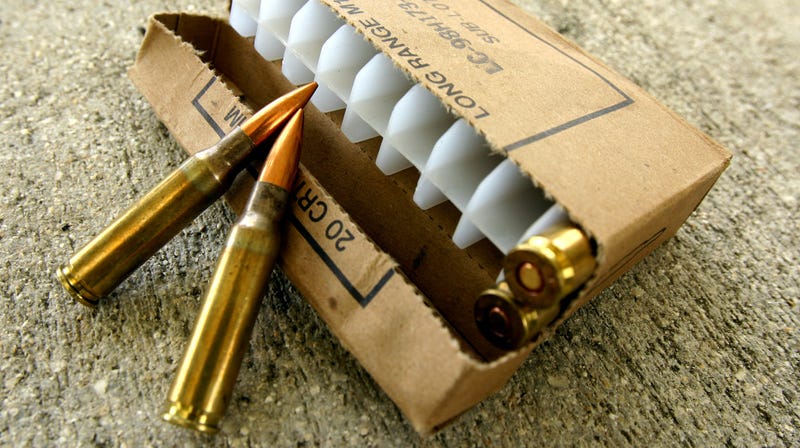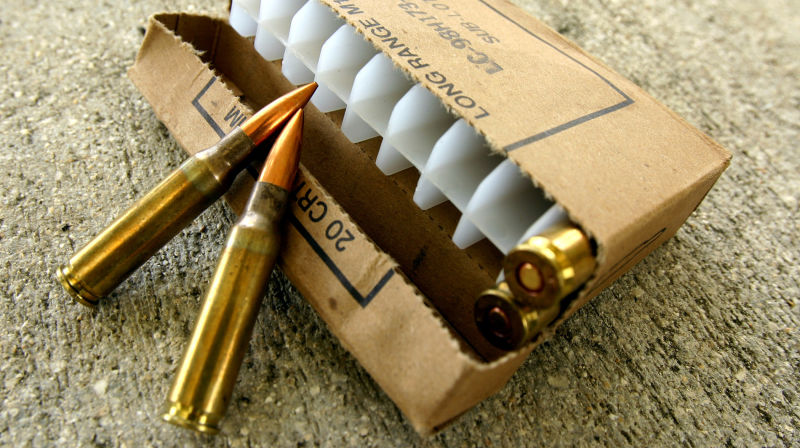
It’s a thought I am 100 percent certain you have all considered at some point. Guns use a big explosion to shoot a bullet REALLY fast, so why don’t we use the awesome power behind a speeding bullet to make a car go as fast as, well, a speeding bullet? Science, my friends. Science is the answer.
In accordance with the scientific principle which states that energy cannot be created or destroyed, a car must convert energy from somewhere else into the kinetic energy that makes it move. Most cars nowadays get their energy from petroleum products, and an increasing amount get their energy from pure electricity. We’ll talk about the petroleum ones here.
Most cars shove a mixture of gasoline and air into a cylinder, where the mixture is compressed by a piston, at which point a spark plug fires off a little spark, and the compressed gasoline/air mixture explodes. That forces the piston down, which in turn spins a crankshaft that the piston is connected to, which is connected to a driveshaft that carries the power to the wheels that move the car. Simple.
Gasoline is the fuel that ends up getting used in a lot of cars not just because it’s economically viable (while still destroying the planet, yes), but because it has what’s known as a high “specific energy.”
Advertisement
Specific energy, in its most basic form, is how much bang you get out of an amount of any given substance. Something like the lead-acid battery that might be in your car actually has a low specific energy, putting out only 0.17 megajoules per kilogram of battery. That means to get enough energy to move a car using lead-acid batteries, you’d need a lot of heavy lead-acid batteries. It would probably be pretty slow.
To really get moving, you need to power your car with something with a better power-to-weight ratio. While something like the uranium out of a breeder reactor, with a specific energy of 80,620,000 megajoules per kilogram, would surely get you going in a hurry, uranium out of a breeder reactor tends to make people a bit dead without extreme amounts of shielding. So in this case, you’d still probably have a power-to-weight issue, what with your car being built out of many many tons of lead and concrete and steel and all.
Advertisement
So that brings us back to the bullet question. If gunpowder can get a bullet moving with great speed very quickly, why not a car?
Well, it turns out you’d need a lot of gunpowder. That’s because gunpowder, at best, has a specific energy density of 11.3 megajoules per kilogram (which was delightfully laid out in a study that tried to examine whether or not gunpowder could be used for welding).
Advertisement
Gasoline, on the other hand, sits at a whopping 46.4 megajoules per kilogram. That’s more than ethanol (30 MJ/kg) coal (33 MJ/kg), even jet fuel (43 MJ/kg). Gasoline packs a serious punch in a little package.
Gunpowder has a shockingly little amount of energy in it. Bullets can move so fast when powered by gunpowder in large part because bullets don’t weigh 4,000 pounds like a car does.
Advertisement
And to see that in action, we’ll turn to England, circa 1991.
The Secret Life of Machines helpfully dumped gunpowder into a mortar tube, and then tried to launch a beer can with it. The beer can promptly flopped out, sadly. But when they tried to launch a beer can with gasoline? Well that thing really MOVED.
Advertisement
And so does your car.













